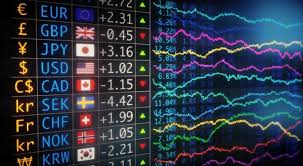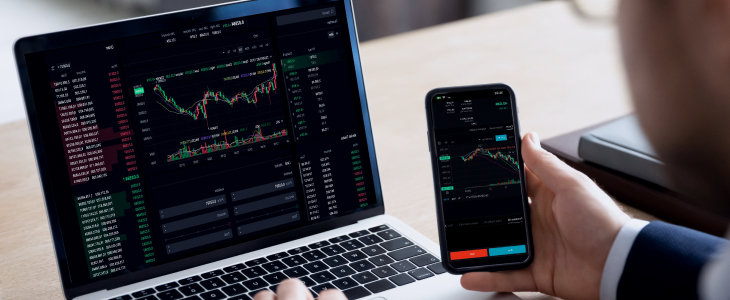
The Ultimate Guide to Forex Trading with Online Brokers 1761847032

The Ultimate Guide to Forex Trading with Online Brokers
Forex trading has become increasingly popular, especially with the rise of online brokers. Traders of all skill levels now have the opportunity to engage in currency trading from the comfort of their own homes. Whether you are a seasoned trader or a newcomer to the forex market, understanding how to navigate the complexities of online brokerage is essential for success. In this comprehensive guide, we will explore the fundamental concepts, strategies, and considerations when choosing an online broker for forex trading. If you are interested in brokers operating in specific regions, you can refer to forex trading online broker India Brokers.
Understanding Forex Trading
Forex, or foreign exchange, refers to the global marketplace for exchanging national currencies against one another. It operates 24 hours a day, five days a week, and is the largest financial market in the world. The forex market is decentralized, meaning that there is no central exchange; rather, trading occurs over-the-counter (OTC) through a network of banks, financial institutions, and individual traders.
Why Choose Online Brokers?
The rise of technology has transformed forex trading. Online brokers provide traders with a platform to buy and sell currencies efficiently, often offering lower fees and greater accessibility compared to traditional brokerage firms. Here are a few advantages of using online brokers:
- Accessibility: Traders can access the forex market anytime, anywhere, thanks to online platforms.
- Leverage: Many online brokers offer significant leverage options, allowing traders to control larger positions with a smaller initial investment.
- Variety of Tools: Most online brokers provide advanced trading tools, charts, and educational resources to help traders make informed decisions.
- Low Costs: Online brokers tend to have lower fees and commissions compared to traditional brokers.
Choosing the Right Online Broker
Selecting an online broker is a critical step in your forex trading journey. With numerous brokers available, it’s essential to consider the following factors:
1. Regulation and Trustworthiness
Ensure that the broker is regulated by a reputable authority. Regulatory bodies such as the Financial Conduct Authority (FCA) in the UK or the Commodity Futures Trading Commission (CFTC) in the US help protect traders from fraudulent activities.
2. Trading Platform
Assess the trading platforms offered by the broker. A user-friendly interface, fast execution speeds, and the availability of financial tools are crucial for an optimal trading experience.
3. Fees and Spreads
Different brokers have varying fee structures. Investigate spreads, commissions, and any additional charges that may apply when trading. Lower fees can significantly impact your profitability.
4. Customer Support
Reliable customer support is essential, especially for traders who may need assistance with account-related issues or technical difficulties. Look for brokers that offer multiple channels of communication, including live chat, email, and phone support.

5. Educational Resources
Brokers that provide educational resources, including webinars, tutorials, and analytical tools, can greatly enhance your trading knowledge and skills.
Trading Strategies and Techniques
Once you’ve established a trading account with a broker, the next step is to develop effective trading strategies. Here are some popular strategies used by forex traders:
1. Day Trading
Day trading involves making multiple trades within a single day, aiming to capitalize on short-term price fluctuations. This strategy requires a good understanding of market trends and fast decision-making skills.
2. Swing Trading
Swing traders hold positions for several days or weeks, looking to capture larger price moves. This approach is less stressful than day trading and requires less constant monitoring of the market.
3. Scalping
Scalping is a high-frequency trading strategy where traders aim to make small profits from numerous trades throughout the day. This requires a quick execution speed and a solid risk management strategy.
4. Trend Following
Trend following involves identifying the direction of market trends and making trades that align with that trend. Traders use technical analysis tools to determine entry and exit points.
Risk Management in Forex Trading
Effective risk management is crucial in forex trading, as it helps protect your capital from significant losses. Here are some key risk management techniques:
- Setting Stop-Loss Orders: Place stop-loss orders to automatically close trades if the market moves against you, limiting potential losses.
- Using Proper Position Sizing: Determine the appropriate size of your trades based on your account balance and risk tolerance.
- Diversifying Your Portfolio: Avoid putting all your capital into one trade; diversify by trading different currency pairs.
Conclusion
Forex trading through online brokers provides an excellent opportunity for individuals looking to participate in the global currency market. By understanding the essentials of forex trading, evaluating brokers carefully, and employing effective strategies and risk management techniques, you can significantly enhance your trading success. Remember, continuous education and practice are key components for growth in this dynamic market. Happy trading!
